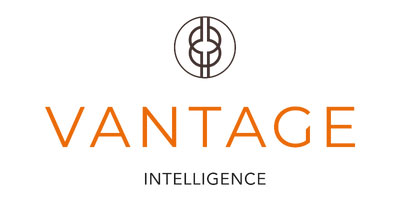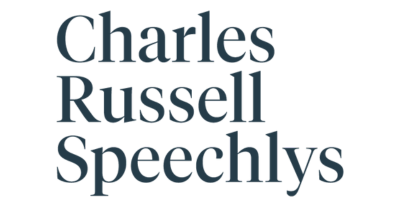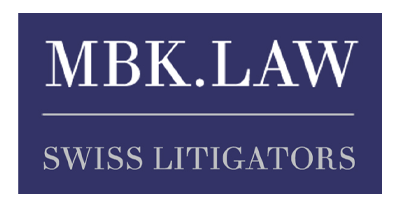Knowledge Hub
Join the Conversation!
Impartial and independent, ThoughtLeaders4 FIRE Knowledge Hub hosts cutting edge industry content and insight.
Email maddi@thoughtleaders4.com to submit content.
Civil Fraud Quarterly Round-Up: Q1 2020
Date: 30/04/2020 Type: Articles Topic: FIRE | Civil Fraud |This quarterly civil fraud update provides a summary of reported decisions handed down in the courts of England and Wales in the period January - March 2020.
STANDARD OF PROOF
In (1) Bank St Petersburg PJSC (2) Alexander Savelyev v (1) Vitaly Arkhangelsky (2) Julia Arkhangelskaya & Oslo Marine Group Ports LLC the Court of Appeal was asked to consider whether a Judge at first instance had applied the correct standard of proof when considering a counter-claim for dishonest conspiracy. The Court of Appeal found that the lower Court had applied too high a standard of proof, requiring facts to be incapable of innocent explanation rather than assessing on the balance of probabilities. The case was therefore remitted to a new judge for determination.
PRIVILEGE
The High Court has recently re-affirmed that legal advice privilege does not attach to communications between a lawyer and client where the lawyer is instructed to further a criminal, fraudulent or iniquitous end. In Lee Victor Addlesee & Others v Dentons Europe LLP the Claimants applied for disclosure of the Defendant law firm’s files relating to advice it had given to a now dissolved company. The Claimants argued firstly that privilege did not survive the dissolution of a company and secondly that the fraud exception applied as the scheme on which the Defendant had advised was fraudulent. The Court of Appeal had previously considered the first part of the argument and found that it was not necessary for a client to assert privilege in order for it to be protected, therefore, privilege survives dissolution or death. The second basis on which the application was made was determined recently by the High Court, who confirmed that if the instruction of a solicitor was for a fraudulent purpose the communications exchanged did not attract legal advice privilege. This rule also applies to communications exchanged after the fraud was committed if the instructions still related to the fraud.
The Court of Appeal also looked at issues relating to privilege in the case of Raiffeisen Bank International AG v Asia Coal Energy Ventures Ltd. the question asked of the Court of Appeal was whether a statement by a lawyer about what her instructions are constitutes a waiver of confidentiality or privilege over the documents which contain those instructions. The Court of Appeal held that such a statement would only constitute a waiver of privilege if that statement was disputed and in particular if what was disputed was the content of the instructions.
FREEZING INJUNCTIONS
The distinction (or lack thereof) between freezing and proprietary injunctions was considered by the High Court in Kea Investments Ltd v Eric John Watson. The issue arose because of an application made by the Defendant for permission to vary an injunction obtained by the Claimant to allow the Defendant to use certain specified funds to cover legal costs. The Court considered the nature of the Claimant’s claim, as well as whether there was a dispute about the beneficial owner of the funds. The Court found that there could be a quasi-proprietary claim which could prevent the Defendant using the funds for its legal expenses. However, the Court also considered whether that would create an injustice if that meant that the Defendant was not able to advance its defence. The Court suggested that the parties agree to an arrangement whereby the funds could be used for legal expenses, but only after a connected party had undertaken a personal liability to pay the same amount to the Claimant in the event that the Claimant’s claim succeeded. No order was made and the Court adjourned the hearing to allow the parties to discuss the proposal.
A post judgment freezing injunction was continued by the Court in Ivanhoe Mines Ltd (formerly Ivanhoe Nickel & Platinum Ltd) v Tony Ricky Gardner despite the Defendant’s arguments that the injunction had been obtained in order to put pressure on him. The Claimant established a risk of dissipation because of a number of factors including the Defendant’s attempts to avoid a Court Order, lack of steps taken to satisfy the judgment debt obtained against him and that a number of his assets could easily be transferred or dissipated.
SEARCH ORDERS
Whilst the case itself related to Intellectual Property rather than fraud, in TBD (Owen Holland) Ltd v Andrew Simons & 6 Others the Court considered the effect and remedy for a breach of a Search Order. The Search Order allowed for the imaging and preservation of items, whereas the Claimant company had undertaken various searches and the documents identified by those searches were relied on by the Claimant to add parties as Defendants to its claim. This was a breach of the Search Order and the Applicants asked the Court to strike out those parts of the particulars of claim which were based on/related to the documents identified by the search. The Court denied that request: the Applicants had not been able to demonstrate that a fair trial would not be possible because of the Claimant’s conduct. Instead the Court required the Claimant to correct the breach by providing (albeit the judgment is silent as to whether these should be provided to the Court or the Applicants):
- A list of the documents obtained as a result of the search order and subsequently identified by way of searches;
- Copies of those documents to an independent third party firm of solicitors; and
- An explanation as to how those documents had been used (including any contact with third parties).
The Court stayed proceedings pending completion of those steps and during the stay the Claimant was prevented from using the documents in any way.
CONTEMPT
In Peter Richard Andreewitch v Magali Moutreuil the Court confirmed that a contemnor must be advised of his right to silence, and that this applied in particular to litigants in person. Failure to do so could render a hearing procedurally unfair.
Whilst not a fraud case per se, the Court also considered an application to commit for contempt in Northamber Plc v (1) Genee World Ltd (in liquidation) (2) Ranjit Singh (3) Interactive Education Solutions Ltd. The Claimant applied to commit the director of the First Defendant for alleged breaches of an injunction restraining breaches of an exclusivity agreement. The Court assessed the nature and duration of the proven breaches and found that the Second Defendant did not quite pass the threshold for a custodial sentence and instead a fine of £25,000 would be the appropriate penalty.
There were two decisions in the case of Integral Petroleum SA (Claimant) v (1) Petrogat FZE (2) San Trade GMBH (Defendants) & (1)Klaus Sonnenberg (2) Mahdieh Sanchouli (3) Hosseinali Sanchouili (4) Kanybek Beisenov (Third Parties). The Claimant company applied to commit the second and third third parties to prison for contempt of Court for breach of an Injunction that they provide letters referring to a forgery and confirming that certain cargo should not be sent to Iran. No such letters had been provided and the Injunction was eventually released on the basis that the cargo had already been delivered to Iran. The Court found that it was appropriate to make committal orders as there had been deliberate breaches of orders designed to hold the ring while the parties’ dispute was determined. The second and third third parties received suspended sentences of two and three months imprisonment as whilst the breaches had been deliberate there were mitigating factors, such as the fact that it was impossible to determine whether the breaches had any causative effect, or whether the Injunction had been granted after the cargo had already reached Iran.
BREACH OF FIDUCIARY DUTY
In Vidya Bhushan Goyal v (1) Florence Care Ltd (2) Shanthi Edwards (3) DKLM LLP the Court considered a claim for breach of fiduciary duty and found that in such claims , an account of profits was available as a remedy virtually as of right. The Court also considered a claim for breach of trust and found that, where a firm of solicitors was not aware of any restrictions placed on funds transferred to its client account, it did not hold them on trust for the transmitting party.
DISCLOSURE
In Vidya Bhushan Goyal v (1) Florence Care Ltd (2) Shanthi Edwards (3) DKLM LLP the Court considered a claim for breach of fiduciary duty and found that in such claims , an account of profits was available as a remedy virtually as of right. The Court also considered a claim for breach of trust and found that, where a firm of solicitors was not aware of any restrictions placed on funds transferred to its client account, it did not hold them on trust for the transmitting party.
MATERIAL CHANGE OF CIRCUMSTANCE
I have written about previous decisions leading to Kazakhstan Kagazy Plc (Claimants) v Baglan Abdullayevich Zhunus & Others (Defendants) & Harbour Fund III LP (Additional Party) & Cooperton Management Ltd & Others (Charging Order Respondents) in my updates of Q1 2019 and Q1 2018. In this particular case, the Respondents to a charging order applied for the order to be reconsidered or varied on the basis that the Claimants had not informed them, when asked, of the existence of an order made by a Cypriot Court preventing disclosure of certain information. However, the Court declined to exercise its discretion on the basis that, even if there had been a misstatement of the position, the order of the Cypriot Court did not affect the Respondents’ position.
FULL AND FRANK DISCLOSURE
A costs order was made against the Claimant in Rugby Borough Council v Tayton & Another where the Claimant had obtained a freezing injunction on a without notice basis which was later discharged by consent. The freezing injunction was granted after the Claimant produced evidence of what it claimed to be dissipation of assets, by way of a second charge over the Defendants’ property. However, the Defendants were aware that they were going to have a liability to the Claimant in costs, and had arranged the second charge to secure the money they had borrowed in order to meet that liability. The Claimant had not disclosed information about the costs position to the Court when applying for the injunction and had failed to serve a note of the hearing on the Defendants. The Court ordered the Claimant to pay the Defendants’ costs of the freezing injunction application.
However, in Abdullah v Siddiqi & Others the Court was not convinced by allegations of breach of full and frank disclosure in respect of WhatsApp messages which the Claimant stated she had deleted and therefore could not disclose. The Court found that it had not been misled and continued the freezing injunction.
CYBER-FRAUD AND CRYPTO-ASSETS
AA v (1) Persons Unknown who demanded Bitcoin on 10th and 11th October 2019 (2) Persons unknown who own/control specified Bitcoin (3) iFINEX trading as BITFINEX (4) BFXWW INC trading as BITFINEX is a case brought by an insurance company who had paid out a ransom following a cyber-fraud on its insured customer. The judgment sets out in some detail the reasoning behind granting the Claimant’s application that the case be heard in private. The case was heard at the end of 2019, but published in early 2020, no doubt as a result of the need for privacy at the outset. The most interesting points of the judgment are: the consideration of the ability to grant Norwich Pharmacal/Bankers Trust relief where it might be necessary to serve the same outside the jurisdiction; whether a freezing injunction could be granted; and the discussion of the nature of crypto-assets (with the Judge quoting extensively from the Legal Statement on Crypto Assets and Smart Contracts) in the context of an application for a proprietary injunction.
DISHONEST ASSISTANCE
In (1) Payroller Ltd (in liquidation) (2 – 3) James Bernard Stephen & Shane Michael Crooks (in their capacity as joint liquidators of Payroller Ltd) (4) Newbain Services Ltd v Little Panda Consultants & 5 Others the Court confirmed that it was not necessary in order to make out a claim for dishonest assistance that a Defendant knew that funds were received in breach of fiduciary duty. It was only necessary to have turned a blind eye. Further, a claim for unconscionable receipt only required the Defendant to have received large sums without providing any consideration.
A fraud relating to carbon credits was considered by the Court in Bilta (UK) Ltd (in liquidation) & Others v (1) NatWest Markets Plc (2) Mercuria Energy Europe Trading Ltd. The fraud was alleged to have been operated by the directors of the Claimant companies by purchasing EU carbon credits from EU member states (not attracting VAT) and selling them to UK counterparties (attracting VAT). The VAT payable was allegedly misappropriated by the directors, rather than being paid to HMRC. Two traders were accused of dishonestly assisting with the scheme by causing the First Defendant bank to buy large quantities of carbon credits from an intermediary. Suspicions were raised with the First Defendant, but it continued to trade carbon credits for a few days afterwards. It was alleged that the First Defendant bank had assisted with the fraud because traders employed by its subsidiary carried on trading despite suspicions of the legitimacy of the trades. The bank and the traders had been ‘buffered’ from the fraud by the involvement of an intermediary company, but that did not mean that assistance was not given if there was a chain of transactions linking the traders, the bank and the misapplication of the VAT money. The Court found the evidence of the traders was untrue, implausible and designed to give a false impression. Both Defendants were found liable for dishonest assistance or knowing participation in fraudulent trading by reason of the First Defendant bank’s trading after a key date when the traders must have known of the obvious risk of fraud.
PRESUMPTION OF HONESTY
In Rajan Russell v (1) Edward Cartwright (2) Robert Sloss (3) Timothy Barlow the Court provided a reminder that where there are rival explanations of a situation or circumstances, one innocent and one involving fraud, the Courts will start from the presumption that the innocent explanation is more likely to be correct. To succeed on any claim to set aside a settlement agreement the Claimant would have had to demonstrate that there had been a fraud perpetrated against him. Not only was he unable to prove any dishonesty, but in pursuing the claim, he was in breach of the settlement agreement and was liable to pay costs on an indemnity basis.
BANKING
In National Bank Trust v Ilya Yurov & 5 Others (which I first discussed in my update of Q3 2016) the Court considered allegations that the Defendants had orchestrated a massive fraud involving procuring the Claimant bank to make $1 billion of loans to companies controlled or owned by the Defendants. The first to third Defendants, who had been on the Claimant bank’s supervisory board as well as being its main shareholders, alleged that all actions they had taken were in the Claimant bank’s best interests. The Court considered the correct approach to evidence, that the civil standard of proof was not altered by an allegation of fraud, and that such an allegation must be properly particularised. The Court noted that memory is fallible, and that witnesses can honestly believe false memories, so that documentary evidence is what a Court should rely on where possible. The Court also considered hearsay and circumstantial evidence and confirmed that if a witness’s evidence was to be challenged, that witness should be cross examined to allow the witness an opportunity to explain any problems or contradictions in his evidence. The Court found in favour of the Claimant.
DIRECTORS’ DUTIES
In Hunt (as liquidator of Systems Building Services Group Limited) v Michie & Others (which is written about in more detail by my colleague here) the Court considered the question of whether all a director’s duties continue post administration or creditors’ voluntary liquidation. The Court found that the specific duties imposed by the Insolvency Act 1986 do not extinguish the general duties owed by a director to a company and its creditors and the Companies Act 2006 sets out which provisions do not apply during an insolvency.
CRIMINAL PROCEEDINGS
The Defendants in Paylor & Others v Bowers & Others sub nom In the Matter of Proximity Ventures Ltd applied for a stay of civil proceedings pending the outcome of a criminal claim. The civil proceedings had alleged misappropriation, fraudulent trading, breach of fiduciary duty, dishonest assistance and receipt, and conspiracy and had been compromised on the basis that if the Defendants defaulted on any part of the settlement, the Claimant would be entitled to enter judgment for the full sum claimed, less anything received in settlement. The Defendants defaulted on payment and the Claimants sought judgment. The Defendants sought a stay of the action pending the outcome of a criminal trial listed for 2021 for conspiracy to defraud, forgery and misconduct in the course of winding up. The Court found that an action for enforcement of the settlement agreement was not concerned with the underlying allegations, so there was no cross over with the criminal action. Whilst a stay was at the discretion of the Court, there was no real danger of injustice in this instance and the stay would not be granted.
About the author
Mary Young is a Partner in the Dispute Resolution team. Her practice covers a wide range of areas but Mary’s particular interests and expertise lie in civil fraud and asset tracing as well as claims against professionals in negligence, breach of fiduciary duty and breach of trust.
Author
Mary Young - Kingsley Napley
Our FIRE Corporate Partners

































